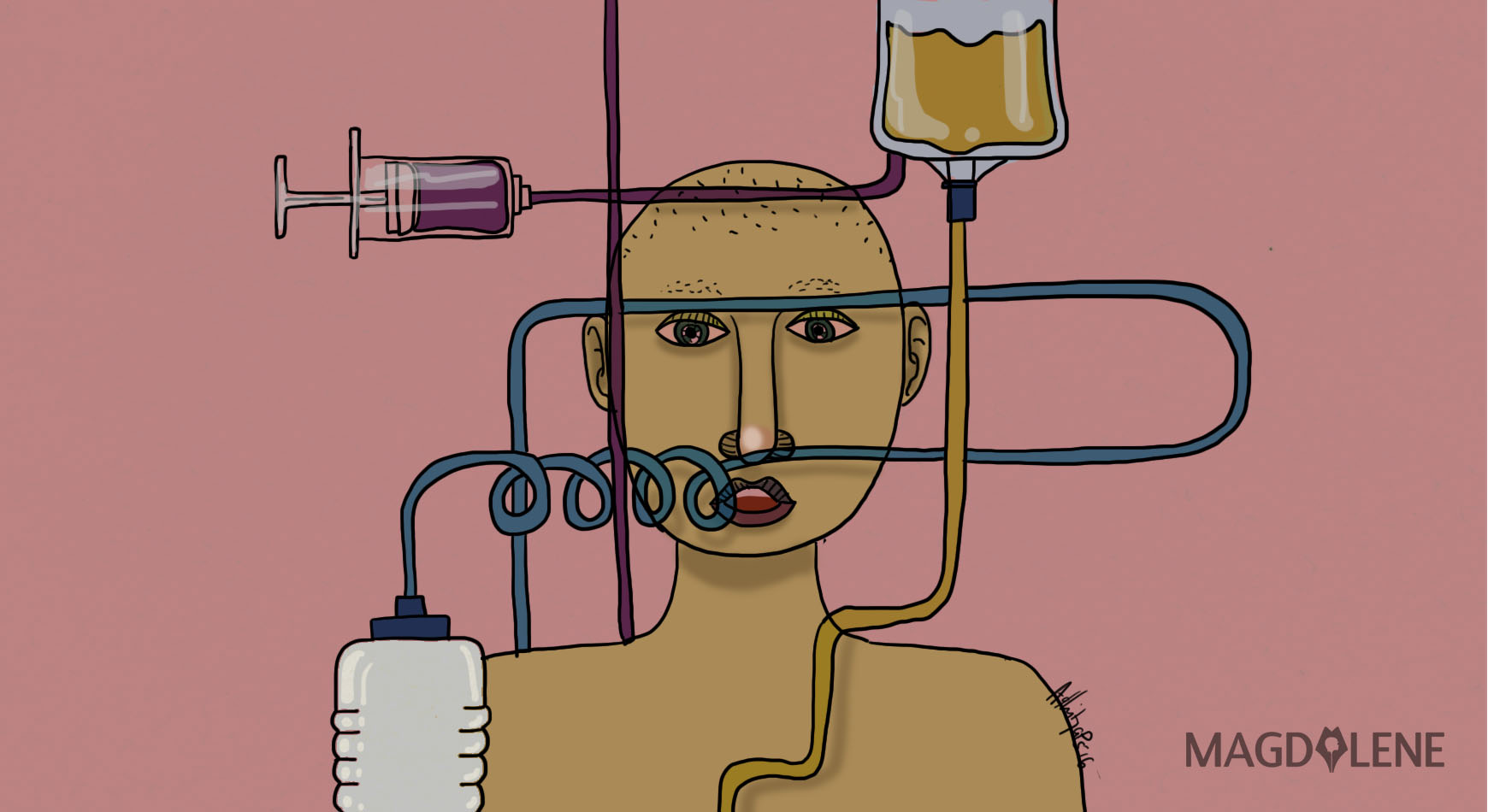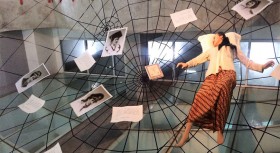When I found myself finishing this piece, I thought, mistakenly, that I lived a pretty normal life. Until I remembered that I had had to stop a couple of times to recharge my energy to keep the brain fog at bay while writing.
I am diagnosed as a thyroid cancer survivor and autoimmune thyroid warrior. I’ve been trapped in a roller-coaster without a brake, soon after my thyroid gland was removed from my body. I never regret that this happened; it has been a while since I reached an acceptance that from then on I would have to do my best to conduct a normal life.
My disorder means I have to adopt new habits, from taking pills for the rest of my life, going for regular check-ups, taking annual scan, and so on. But these are what most people associate with cancer survivors already. The truth about my condition is that the damage is permanent, the easy energy drain is real, and the mental health challenge is a full-time job I need to overcome. And these are all invisible.
You’re probably not very familiar with thyroid cancer, and that is understandable, as there is not much awareness being raised about it as compared to other types of cancer like breast cancer. But thyroid cancer incidence has been on the rise – in fact it has been identified as the third most typical cancer to occur in women after breast cancer and cervical cancer. In addition, the Hashimoto’s thyroiditis, one of the autoimmune thyroid diseases, should be considered as a women health issue, because of the 50:1 female-to-male ratio of sufferers.
What you should at least know is why a healthy thyroid gland is so important, and why your life changes significantly when something is wrong with it. The thyroid gland is a butterfly shaped endocrine gland, located at the base of the neck. It produces various hormones that affect our metabolism rate, heart rate, body temperature, and various other strategic functions. In short, it is the central gear of the human body. Without it, everything slows down.
It has been three years since I started taking synthetic hormone every morning to replace my already compromised thyroid gland. It’s not as easily treated as what some online articles would have you believe. Some of these articles even misguidedly assert that thyroid cancer is a “good” cancer, merely by looking at the high percentage of survival rate. But considering its adverse effects to a person’s quality of life, brings to life, I can safely disagree with those articles. Let me show you what it’s like to live without the thyroid gland.
First, because it’s invisible, nobody probably suspects you of being ill. You may find me putting myself together, multitasking at the workplace, facilitating a discussion, and doing other activities done by a perfectly healthy and confident young woman. Yes, that’s actually good news. There have been periods of sick leaves for me, especially when my symptoms hit me straight all at once, still I thrive in the healing process.
But living without thyroid means tackling persistent, and often inexplicable, pain at a whole new level, and developing a warrior mentality, even if you never intend to enter into a battlefield. Thyroid disease has made me realize how precious energy is, as I fight chronic fatigue daily.
To compare my conditions before and after I suffer from the thyroid disorder: I now need five times more energy than before the illness to do the simplest tasks. Taking a shower leaves me so tired that sometimes I have to take a nap afterwards. Doing grocery drains my already half-full battery, so thank God for energy-saving mini markets.
I also may cancel plans at the last minutes, not because I have a commitment issue, but because sometimes I suddenly lose my energy to move, let alone socialize. It has been a tough process for myself to cope with the guilt of having to break promises and being unable to realize my own plans. And I also have to deal with people who question the validity of my reason, because I do not look sick, because when I am struggling to gain my energy back by resting, it is also the day when I mostly hide from people.
My “you-don’t-look-sick” appearance doesn’t make my health condition less valid. My invisible disability due to thyroid cancer and autoimmune is a real issue. Still, most of the time I stay busy, while managing all the symptoms in silence.
Bunga Ramadani is a driven-by-gratitude public health advocate. She is the co-founder of @pitatosca, the Indonesian thyroid health support group.








Comments